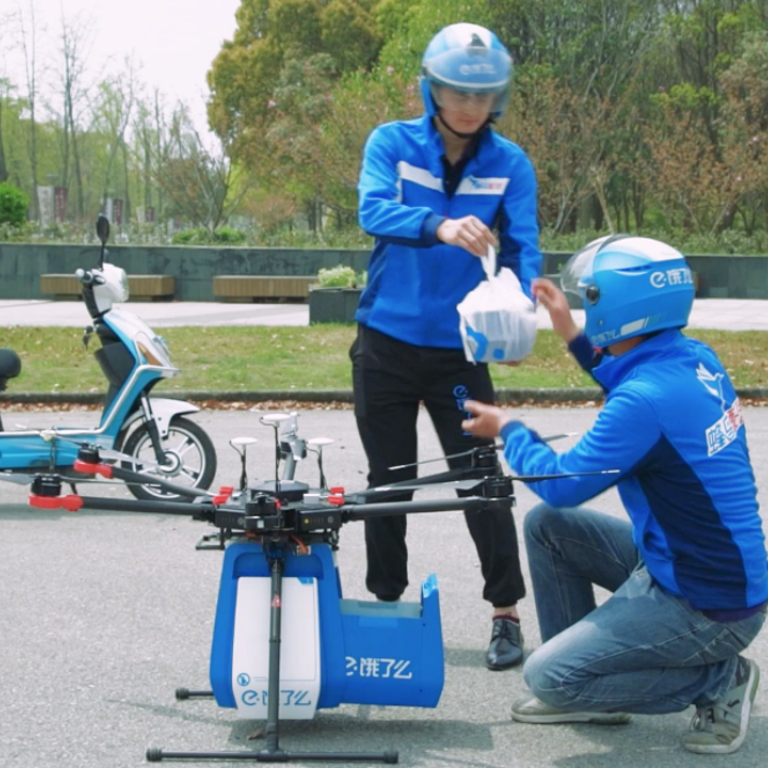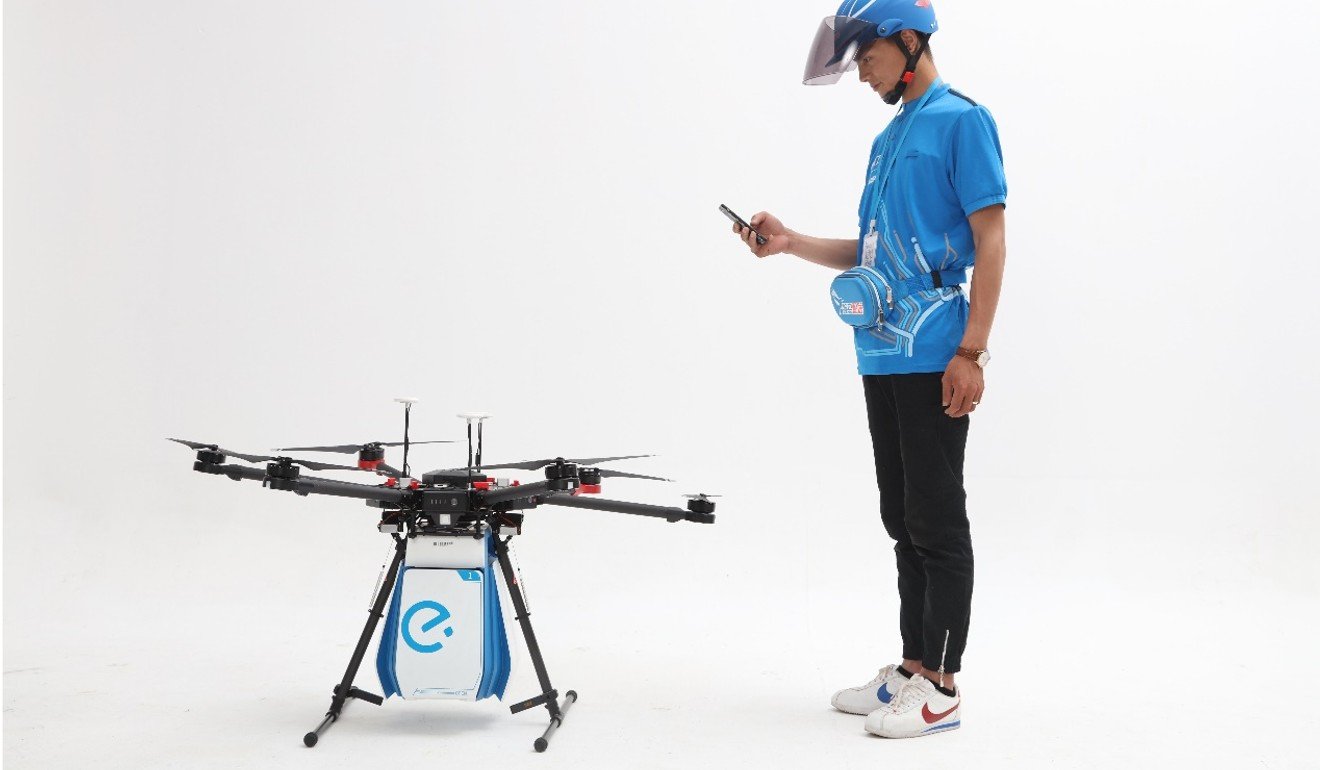
Takeaway food firm Ele.me enters the drone delivery age, with trials starting on its 65km/hour ‘E7’
The Chinese start-up claims its new E7 can carry up to six kilos of food and fly as far as 20 kilometres
Ele.me, one of China’s leading internet food delivery platforms, is to introduce an improved fleet of drones which it claims will improve efficiency and be able to carry more food.
The company’s new model, the “E7”, made its debut during the World Unmanned Systems Conference in Shanghai over the weekend, and is the third-generation drone to be trialled by Ele.me.
The Chinese start-up claims the E7 can carry up to six kilos of food and fly as far as 20 kilometres at a maximum speed of 65km per hour – parameters that will allow its commercial use in China.
The E7 will start drone-delivery trials soon based out of a few sites in a mix of Chinese cities and says it will unveil an even-more advanced drone model in April next year. The company already makes more than 10 million daily food deliveries.

“Currently we do not have a timetable for the mass adoption of drones for food delivery as drone delivery technology needs further improvement and relevant plans need approval from regulatory authorities,” Ele.me told the South China Morning Post.
Early last year the Chinese company announced a “future logistics” initiative with the aim of replacing its human courier network with other more innovative transport methods within five years.
Backed by the world’s largest e-commerce operator Alibaba Group, Ele.me has just completed the acquisition of smaller rival Baidu Waimai in China, and believes that well-managed drone deliveries will allow a massive growth in orders, especially over longer-distances.
E-commerce platforms including JD.com already using drones, say their use will lead to huge cost and efficiency savings, but while all sounding good in principle, the flying of drones in China still faces some major regulatory hurdles including airspace restrictions and operating licenses.
China’s second-largest e-commerce platform operator, JD has been making frequent drone deliveries in certain areas of Chinese cities including Xi’an in Shaanxi province and Suqian in Jiangsu province. The company is also looking to trial drone deliveries outside Beijing’s sixth ring road, after its permission for trial inside the core areas was denied.
According to research from Trustdata, China’s food takeaway market is dominated by people living in less developed areas.
Its latest study showed 51.5 per cent of food delivery app users were in third-tier cities, compared with 33.3 per cent in second-tier, and 15.2 per cent in first-tier cities.

